The Christian right, otherwise referred to as the religious right, are Christian political factions characterized by their strong support of socially conservative and traditionalist policies. Christian conservatives seek to influence politics and public policy with their interpretation of the teachings of Christianity. In the United States, that means opposing any interpretation of the Establishment Clause of the U.S. Constitution that implies a "separation of church and state".
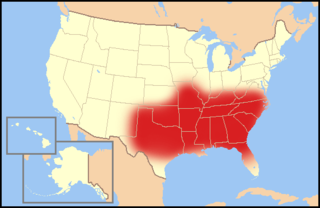
The Bible Belt is a region of the Southern United States and one Midwestern state, the state of Missouri, in all of which socially conservative Protestant Baptist Christianity plays a strong role in society. Church attendance across the denominations is generally higher than the nation's average. The region contrasts with the religiously diverse Midwest and Great Lakes and the Mormon corridor in Utah, southern Idaho, and northern Arizona.

Religion in the United States began with the religions and spiritual practices of Native Americans. Later, religion also played a role in the founding of some colonies, as many colonists, such as the Puritans, came to escape religious persecution. Historians debate how much influence religion, specifically Christianity and more specifically Protestantism, had on the American Revolution. Many of the Founding Fathers were active in a local Protestant church; some of them had deist sentiments, such as Thomas Jefferson, Benjamin Franklin, and George Washington. Some researchers and authors have referred to the United States as a "Protestant nation" or "founded on Protestant principles," specifically emphasizing its Calvinist heritage. Others stress the secular character of the American Revolution and note the secular character of the nation's founding documents.
Religion in Canada encompasses a wide range of beliefs and customs that historically has been dominated by Christianity. The constitution of Canada refers to God and the monarch carries the title of Defender of the Faith, however Canada has no official church and the government is officially committed to religious pluralism. Freedom of religion in Canada is a constitutionally protected right, allowing individuals to assemble and worship without limitation or interference. Rates of religious adherence have steadily decreased since the 1960s. After having once been central and integral to Canadian culture and daily life, Canada has become a post-Christian state. Although the majority of Canadians consider religion to be unimportant in their daily lives, they still believe in God. The practice of religion is generally considered a private matter throughout society and the state.

The mainline Protestant churches are a group of Protestant denominations in the United States and in some cases in Canada largely of the theologically liberal or theologically progressive persuasion that contrast in history and practice with the largely theologically conservative Evangelical, Fundamentalist, Charismatic, Confessional, Confessing Movement, historically Black church, and Global South Protestant denominations and congregations. Some make a distinction between "mainline" and "oldline", with the former referring only to denominational ties and the latter referring to church lineage, prestige and influence. However, this distinction has largely been lost to history and the terms are now nearly synonymous.

British society is primarily irreligious. The nation is one of the most secularised in the world surveys determining religious beliefs of the population find that agnosticism, nontheism, atheism, secular humanism, and non-affiliation are views shared by a majority of Britons. Historically, it was dominated for over 1,400 years by various forms of Christianity, which replaced preceding Romano-British religions, including Celtic and Anglo-Saxon paganism. Religious affiliations of United Kingdom citizens are recorded by regular surveys, the four major ones being the national decennial census, the Labour Force Survey, the British Social Attitudes survey and the European Social Survey.
Social conservatism in Canada represents conservative positions on issues of family, sexuality and morality. In the European and North American context, social conservatives believe in natural law as well as traditional family values and policies. In Canada's modern context, social conservatism also includes pro-life values on abortion and euthanasia.

Religion in Australia is diverse. In the 2021 national census, 43.9% of Australians identified with Christianity and 38.9% declared "no religion".
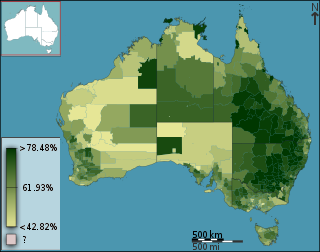
Christianity is the largest religion in Australia, with a total of 43.9% of the nation-wide population identifying with a Christian denomination in the 2021 census. The first presence of Christianity in Australia began with British colonisation in what came to be known as New South Wales in 1788.
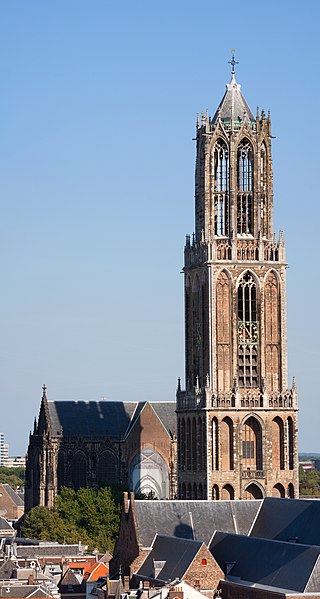
Religion in the Netherlands was dominated by Christianity between the 10th and 20th centuries. In the late 19th century, roughly 60% of the population was Calvinist and 35% was Catholic. Also, during the Holocaust, there was a big Jewish population. Since then, there has been a significant decline in both Catholic and Protestant Christianity, with Protestantism declining to such a degree that Catholicism became the foremost form of the Christian religion. The majority of the Dutch population is secular. Relatively sizable Muslim and Hindu minorities also exist.

Religion in New Zealand encompasses a wide range of groups and beliefs. New Zealand has no state religion and freedom of religion has been protected since the signing of the Treaty of Waitangi.
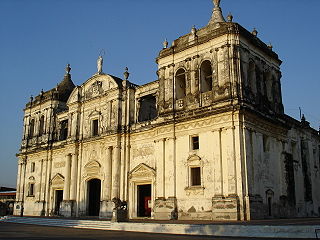
Religion in Nicaragua is predominantly Christian and forms a significant part of the culture of the country as well as its constitution. Religious freedom and religious tolerance is promoted by the Nicaraguan constitution yet the government has in recent years detained, imprisoned, and likely tortured numerous Catholic leaders, according to multiple news outlets. As of 2020, 79% of believers stated they are Christian.
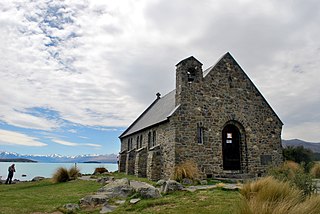
Christianity in New Zealand dates to the arrival of missionaries from the Church Missionary Society who were welcomed onto the beach at Rangihoua Bay in December 1814. It soon became the predominant belief amongst the indigenous people, with over half of Māori regularly attending church services within the first 30 years. Christianity remains New Zealand's largest religious group, but no one denomination is dominant and there is no official state church. According to the 2018 census 37.3% of the population identified as Christian. The largest Christian groups are Anglican, Catholic and Presbyterian. Christian organisations are the leading non-government providers of social services in New Zealand.

Christianity is the most prevalent religion in the United States. Estimates from 2021 suggest that of the entire U.S. population about 63% is Christian. The majority of Christian Americans are Protestant Christians, though there are also significant numbers of American Roman Catholics and other Christian denominations such as The Church of Jesus Christ of Latter-day Saints, Eastern Orthodox Christians and Oriental Orthodox Christians, and Jehovah's Witnesses. The United States has the largest Christian population in the world and, more specifically, the largest Protestant population in the world, with nearly 210 million Christians and, as of 2021, over 140 million people affiliated with Protestant churches, although other countries have higher percentages of Christians among their populations. The Public Religion Research Institute's "2020 Census of American Religion", carried out between 2014 and 2020, showed that 70% of Americans identified as Christian during this seven-year interval. In a 2020 survey by the Pew Research Center, 65% of adults in the United States identified themselves as Christians. They were 75% in 2015, 70.6% in 2014, 78% in 2012, 81.6% in 2001, and 85% in 1990. About 62% of those polled claim to be members of a church congregation.

Religion in Guyana is dominated by various branches of Christianity, with significant minorities of the adherents of Hinduism and Islam.
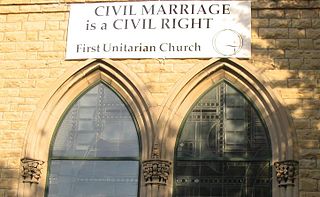
Religion in the United States is remarkable in its high adherence level compared to other developed countries. The First Amendment to the country's Constitution prevents the government from having any authority in religion, and guarantees the free exercise of religion. Many faiths have flourished in the United States, including imports spanning the country's multicultural heritage as well as those founded within the country, and have led the United States to become the most religiously diverse country in the world.

Protestantism is a branch of Christianity that emphasizes justification of sinners through faith alone, the teaching that salvation comes by unmerited divine grace, the priesthood of all believers, and the Bible as the sole infallible source of authority for Christian faith and practice. The five solae summarize the basic theological beliefs of mainstream Protestantism.
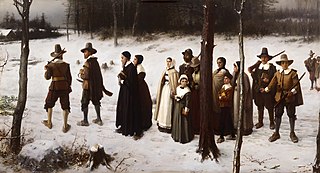
Christianity was introduced with the first European settlers beginning in the 16th and 17th centuries. Colonists from Northern Europe introduced Protestantism in its Anglican and Reformed forms to Plymouth Colony, Massachusetts Bay Colony, New Netherland, Virginia Colony, and Carolina Colony. The first arrivals were adherents to Anglicanism, Congregationalism, Presbyterianism, Methodism, the Baptist Church, Calvinism, Lutheranism, Quakerism, Anabaptism and the Moravian Church from British, German, Dutch, and Nordic stock. America began as a significant Protestant majority nation. Significant minorities of Roman Catholics and Jews did not arise until the period between 1880 and 1910.

Protestantism in Canada has existed as a major faith in Canada ever since parts of northern Canada were colonized by the English. As of 2001, 29.2% of Canadians identified as Protestant. According to a study by Pew Researchers published in 2013, 27% of Canadians are Protestant. Based on 2011 estimates, Protestant faiths collectively form the third largest religious group in Canada after the largest, Roman Catholicism, and the second largest group, those with no religious affiliation.

The decline of Christianity in the Western world is the decreasing Christian affiliation in the Western world. While most countries in the Western world were historically almost exclusively Christian, the post-World War II era has seen developed countries with modern, secular educational facilities shifting towards post-Christian, secular, globalized, multicultural and multifaith societies.

















